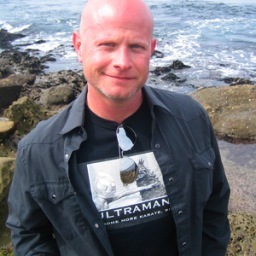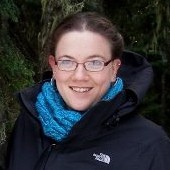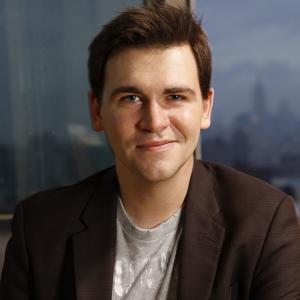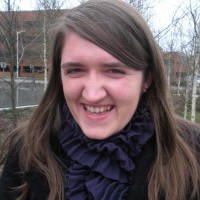We are thrilled to announce the first cohort of New Media and Culture Certificate program graduates. We will miss the energy and intellectual curiosity they bring to campus, but look forward to seeing the amazing scholarly, artistic, and technological contributions we know they will produce in the years ahead. Congratulations to all!
Jacob Levernier, Psychology

Specializes in: Psychology, data ethics, data/code literacy, statistics, moral development
Graduating from UO: Spring 2016
Website: In March 2014, while I was a student in the NMCC, I launched http://AdUnumDatum.org, a new personal website for sharing data-related tutorials and ethics discussions.
In my current work, I am attempting to build skills and knowledge at the intersection of Psychology, data analysis, and ethics. Through the NMCC, I have gained a broader perspective that draws from Journalism and Philosophy in addition to my home discipline of Psychology. In addition, through the NMCC’s relationship with the Digital Scholarship Center, I have met other students and faculty and staff with whom I am particularly excited to continue to work in the future (this term, I am a Graduate Affiliate of the Digital Scholarship Center, and am applying what I’m learning from discussions there to my NMCC coursework, and vice versa). The combination of quantitative and qualitative training not only recognized but also required by the NMCC has improved my graduate education by adding an additional type of richness and interdisciplinary breadth that it would otherwise lack.
Jenny Dean, Communication & Society

Specializes in: Journalism & changing technologies
Graduating from UO: 2016
I am currently working on research about the changing role of the reporter in the newsroom with a focus on what role technology is playing. It is a qualitative study where I interview newsroom writers and photographers about their experience today and 10 years ago. Having a strong background in new media and culture is an essential part of my work.
Brant Burkey, Media Studies

Specializes in: Media Studies, Participatory Media, Journalism, Media Theory & Criticism, Media Ethics, Memory Studies
Graduating from UO: Spring 2014
Post-Graduation plans: Assistant Professor of Communications, CSU Dominguez Hills
My research involves the effects of multimodal platforms and social media on cultural heritage and collective memory practices in the new media landscape. I introduce the concepts of multimodal memory practices and platformed communities of memory.
Emily McGinn, Comparative Literature

Specializes in: Global Modernisms, Latin American Literature, Irish Literature, Science and Literature
Graduating from UO: Spring 2014
Post-Graduation Plans: Mellon Postdoctoral Fellowship in Digital Humanities, Lafayette College
Website: http://www.scholarlyediting.org/2014/editions/intro.markonthewall.html
My research is focused on the impact of new technologies like the gramophone, on narrative form in the modernist era (1890-1940) as well as the global exchange of ideas and circulation of technologies. The NMCC has allowed me to connect this research into current issues of technology and text and to participate more fully in the arena of Digital Humanities.
Ryan Eanes, Media Studies

Specializes in: User interface design & user experience; mobile technologies
Graduating from UO: Spring 2015
Website: www.ryanean.es
Ryan Eanes continues to research new media and social media as they intersect with the so-called “third space” between home and the workplace.
Jeremy Swartz, Communication & Society

Specializes in: Aesthetics; Philosophy of Communication and Technology; Media and Communication Theory, History, and Ethics; Digital Anthropology and Media Archaeology
Graduating from UO: Spring 2015
The certificate extends my background in curating participatory and collaborative arts, media, and publics while engaging multi-modal coursework. It has inspired me to continue my work in integrating philosophy, communication, and design with emphases in intellectual property law and digital identity along with physical-virtual environments and ecologies.
Iris Bull, Media Studies

Specializes in: Game studies
Graduating from UO: Spring 2014
Website: Iris is active on Twitter http://www.twitter.com/ibull
Iris’s NMCC coursework explored virtual worlds from an interdisciplinary perspective. Drawing from computer science, geography, and communications, Iris was able to study the political characteristics of videogame software.










